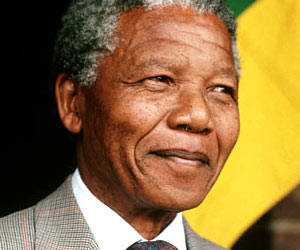[ONLINE ONLY] Shawn Hattingh and Lucien van der Walt, 2013, “Mandela, the ANC and the 1994 Breakthrough: Anarchist / syndicalist reflections on national liberation and South Africa’s transition”
December 15, 2013 Leave a comment
[ONLINE ONLY] Shawn Hattingh and Lucien van der Walt, 2013, “Mandela, the ANC and the 1994 Breakthrough: Anarchist / syndicalist reflections on national liberation and South Africa’s transition,” for anarkismo.net here.

SUMMARY
The destruction of the apartheid state form, with its odious policies of coercion and racism, was a major triumph for the working class in South Africa and elsewhere, showing that ordinary people can challenge and defeat systems that seem quite unbreakable. Mandela did play a heroic role, but was also the first to admit that “It is not the kings and generals that make history but the masses of the people, the workers, the peasants, the doctors, the clergy.” And indeed, it was the black working class, above all, that through struggle tore down many features of apartheid by the late 1980s, such as the pass law system, the Group Areas Act and numerous other odious laws and policies.
The 1994 transition in South Africa was a political revolution, a break with the apartheid and colonial periods of state-sanctioned white supremacy, a “massive advance” in the conditions of the majority. It introduced a new state, based on non-racialism, in which South Africa was to be a multi-racial, multi-cultural but unified country, founded on human rights; welfare and social policy and legislation was transformed; capitalism was kept in place, but despite this, there were very massive and very real changes, political and material, that made qualitative differences in the daily lives of millions of black and working class people. And for millions, it is precisely the association of Mandela with that victory and with those changes that makes him so emotionally powerful.
Yet at the same time, Mandela’s policies and politics had important limitations that must be faced if the current quandary of South Africa, nearly 20 years later, is to be understood. Mandela never sold out: he was committed to a reformed capitalism, and a parliamentary democracy, and unified South Africa based on equal civil and political rights, a project in which black capitalists and black state elites would loom large. These goals have been achieved, but bring with them numerous problems that must be faced up if the final liberation – including national liberation – of South Africa’s working class is to be achieved.
The 1994 breakthrough was a major victory, but it was not the final one, for a final one requires a radical change in society, towards a libertarian and socialist order based on participatory democracy, human needs rather than profit and power, and social and economic justice, and attention to issues of culture and the psychological impact of apartheid.
As long as the basic legacy of apartheid remains, in education, incomes, housing and other spheres, and as long as the working class of all races is excluded from basic power and wealth by a black and white ruling class, so long will the national question – the deep racial / national divisions in South Africa, and the reality of ongoing racial/ national oppression for the black, Coloured and Indian working class – remain unresolved. And so long will it continue to generate antagonisms and conflicts, the breeding ground for rightwing populist demagogy, xenophobia and crime. By contrast, a powerful black elite, centred on the state and with a growing corporate presence, has achieved its national liberation.
Mandela, the ANC and the 1994 Breakthrough:
Anarchist / syndicalist reflections on national liberation and South Africa’s transition
Shawn Hattingh and Lucien van der Walt
Since Nelson Mandela’s death, thousands of articles and millions of people have paid tribute to him. They have rightly praised him for his stance against the apartheid state, which saw him spend 27 years in prison, his non-racialism, and his contribution to the struggle in South Africa. For much of his life Nelson Mandela was indeed the most prominent figure in the liberation struggles in Africa that were waged in the 1960s, 1970s and 1980s. Read more of this post

 PDF is online
PDF is online 